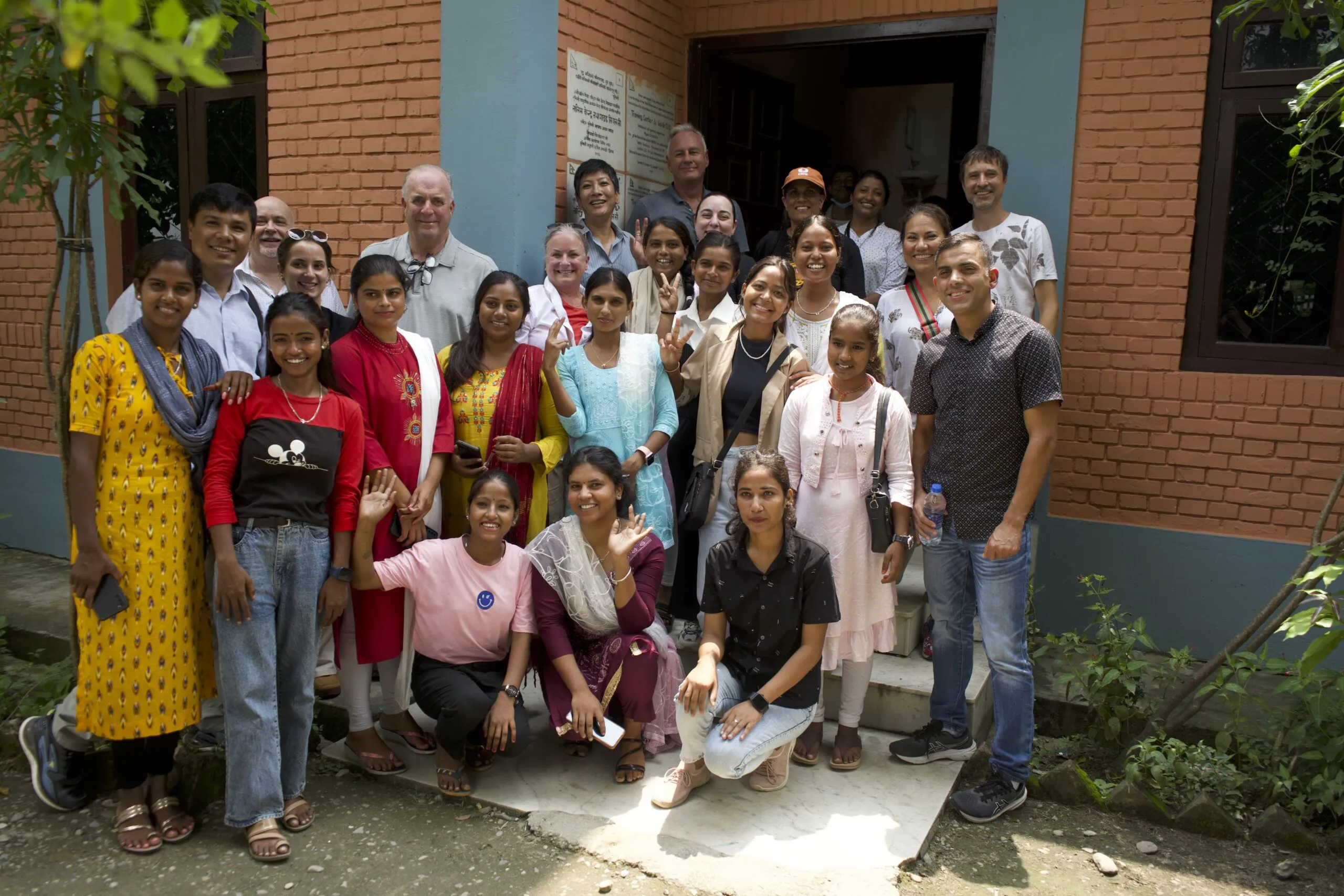Delegation of Four Congress Members Visit Nepal with CARE Learning Tours to Learn About the Root Causes of Human Trafficking and Forced-, Bonded- and Child-Labor
Members spent time in rural communities with targeted community member and survivors, as well as met with Ambassador Thompson and the Honorable President Mr. Ramchandra Paudel
Washington, DC—From August 27th – 31st, a delegation of four U.S. Congressional Representatives traveled to Nepal with CARE to lean how foreign investments are addressing the root causes of human trafficking and forced-, bonded-, and child-labor. The members traveled throughout the Kathmandu Valley as well as through Lumbini Province to witness firsthand the importance of U.S. investments in expanding equitable economic opportunity, promoting safety and protections for workers, and establishing civic networks that help minimize vulnerabilities to exploitation and trafficking.
The delegation was led by Rep Mark Pocan (D-WI-2) and included Rep Susan Wild (D-PA-7), Rep Dan Kildee (D-MI-8), and Rep Veronica Escobar (D-TX-16). The congressmembers were joined by Mona Sherpa (Deputy Country Director, CARE Nepal), Ritu Sharma (Vice President, U.S. Programs, Policy and Advocacy CARE USA), Ashley Smith (Director or Engagement and Mobilization, U.S. Programs, Policy and Advocacy CARE USA), and Mahendra Pandey (Senior Manager, Forced Labor & Human Trafficking, Humanity United).
“It was a privilege to lead this delegation to Nepal to learn how US investment is making a positive impact in the region,” said Rep Mark Pocan. “From fighting human trafficking, child labor, and exploitive practices, our investments are making Nepal a more equitable and safer place to live. Thank you to CARE USA for highlighting these important issues, and I look forward to getting back to Washington to help strengthen our partnership with the Nepali people.”
Over the five days of the Learning Tour, the delegation explored various themes—including promoting safe migration, sustainable livelihoods and self-empowerment, preventing labor exploitation, and accountability and rehabilitation—via briefings, program site visits, and meetings with community leaders. In addition, the delegation met with the Country Team from the U.S. Embassy to learn about U.S. government priorities in the country as well as paid a courtesy call to the Honorable President Mr. Ramchandra Paudel to discuss their experiences in Nepal.
The delegation started their journey in Kathmandu, where they met with Nepalis preparing to migrate for labor to learn about their motivations and hope for the future, as well as the vulnerabilities that Nepali workers face abroad. They then traveled to the southern plains of Lumbini Province, where the delegation observed how local NGOs and governments are partnering to prevent human trafficking at the open border between Nepal and India. They met with adolescent girls from marginalized communities training to advocate for their rights within their homes and with community and political leaders at the local, provincial, and federal levels, hearing directly about their fight for their right to an education and against their own child marriages. The delegation also visited one of many public libraries and community resource centers that demonstrate how community-led and integrated programming is providing information about safe migration to those community members seeking foreign employment. The centers also provide educational and livelihood opportunities for those who wish to stay or have returned from abroad and want to build healthy and prosperous lives for themselves and their families in their homeland.
After returning to Kathmandu, the delegation met with trafficking survivors who are now working to end exploitative labor practices both within Nepal and abroad. They witnessed how NGOs are working with brick kilns and carpet factories to eradicate forced and child labor through an innovative incentive system that both protects workers and benefits businesses. Finally, the delegation visited shelters and rehabilitation centers to learn more about survivor-led responses to these issues. Throughout the Learning Tour, the communities met and programs visited helped the delegation understand what is needed to build long term resilience, economic security, and gender equity and reduce vulnerabilities to exploitation and human rights abuses. Sites and programs visited included Shramik Sanjal, Maiti Nepal, CARE UDAAN, CARE Tipping Point, Read Nepal, Good Weave International, and Shakti Samuha. The delegation was able to hear both directly from community members as well as implementors including WOREC, USAID’s Hamro Samman, Winrock, Global Fairness Initiative, Blitz Media, LAPSOJ, and NIMJN.
About the CARE Learning Tours Program
Several times a year, CARE hosts high-level delegations in the countries where we work so they can experience firsthand the impact of U.S. investments on the ground. The Learning Tours include members of Congress and the U.S. Administration, journalists, public figures, corporate partners, donors, and other dignitaries. Each trip takes the delegation off the beaten path to talk with community members, visit local clinics and hospitals, meet with partner organizations, and engage with high-level government officials. We believe when leaders meet the women and families behind the statistics, they will be inspired and motivated to lead change.

